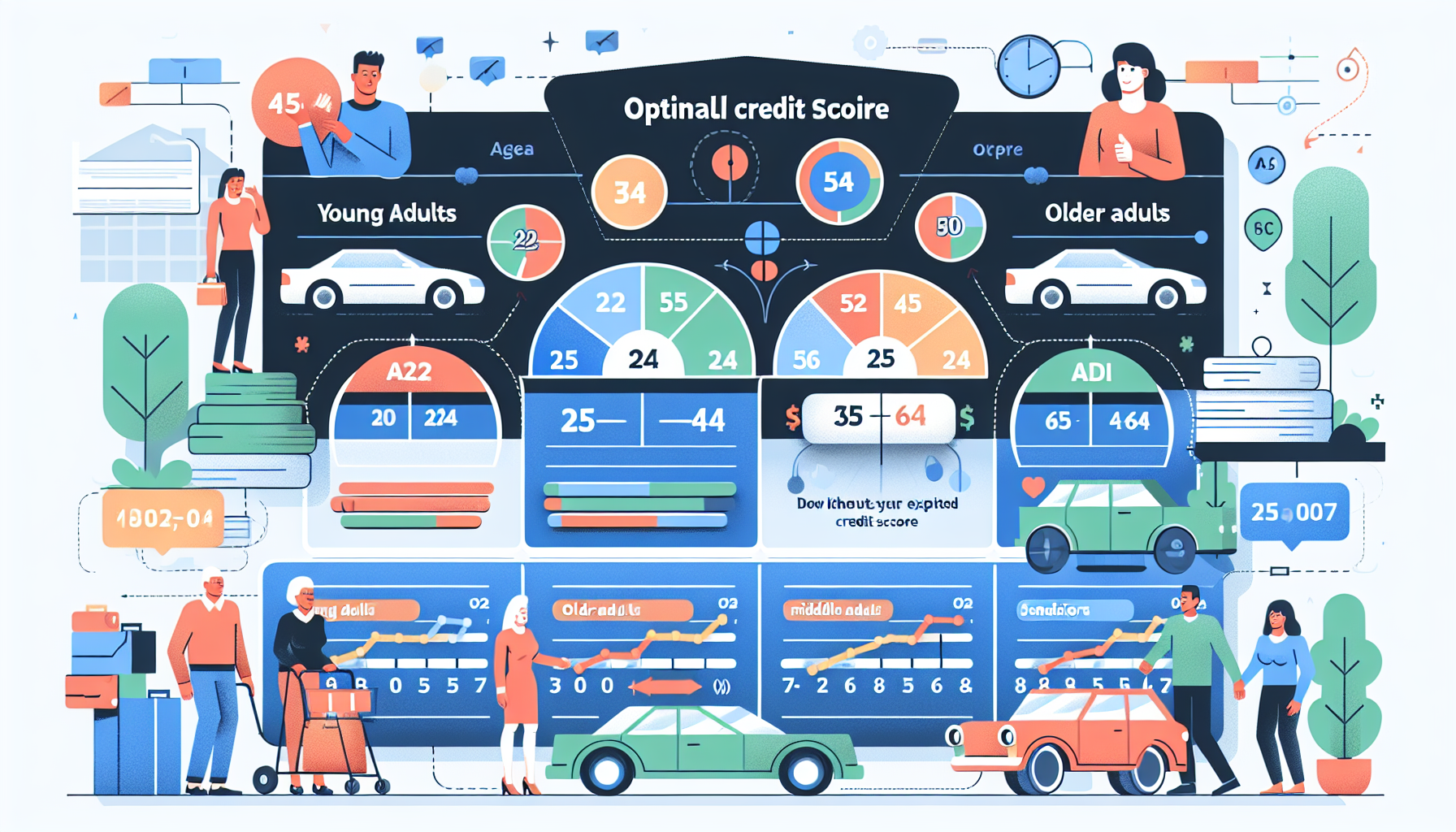A person’s credit score is a crucial financial indicator that can affect their ability to secure loans, obtain favorable interest rates, and even rent an apartment. However, credit scores can vary significantly depending on a person’s age group. Understanding the optimal credit scores for different age groups and how to achieve and maintain them is essential for financial success. In this article, we will explore the importance of credit scores by age group and provide tips on how to achieve and maintain optimal credit scores at every stage of life.
Understanding the Importance of Credit Scores by Age Group:
As individuals progress through different stages of life, their financial responsibilities and needs change. This is reflected in their credit scores, which can vary depending on their age group. For example, younger individuals may have lower credit scores due to limited credit history and potentially higher debt from student loans. On the other hand, older individuals may have higher credit scores as they have had more time to establish a solid credit history and manage their finances responsibly.
It is important to understand that credit scores play a significant role in various aspects of life, including obtaining a mortgage, securing a car loan, or even applying for a credit card. Lenders use credit scores to assess a person’s creditworthiness and ability to repay debts. Therefore, maintaining a good credit score is crucial regardless of age. By knowing the optimal credit scores for different age groups, individuals can work towards improving their credit standing and achieving their financial goals.
When it comes to credit scores, there is no one-size-fits-all approach. Each age group may have different factors influencing their credit scores, such as the types of debt they carry, their payment history, and the length of their credit history. By understanding these factors and how they impact credit scores, individuals can take proactive steps to improve their credit standing and maintain optimal scores throughout their lives.
How to Achieve and Maintain Optimal Credit Scores at Every Age:
To achieve and maintain optimal credit scores at every age, individuals should focus on several key factors. Firstly, it is essential to make timely payments on all debts, including credit cards, loans, and mortgages. Payment history is one of the most significant factors influencing credit scores, so staying current on all payments is crucial. Additionally, individuals should aim to keep their credit card balances low and avoid applying for multiple new lines of credit within a short period, as these actions can negatively impact credit scores.
Another essential aspect of maintaining optimal credit scores is regularly monitoring credit reports for errors or fraudulent activity. By reviewing credit reports from all three major credit bureaus – Equifax, Experian, and TransUnion – individuals can ensure that their credit information is accurate and up to date. If any errors are found, they should be disputed and corrected promptly. Additionally, individuals should consider utilizing credit monitoring services to help detect any suspicious activity and prevent identity theft.
Furthermore, individuals should aim to diversify their credit mix by having a healthy balance of different types of credit, such as credit cards, installment loans, and mortgages. Having a varied credit portfolio can demonstrate responsible credit management and improve credit scores over time. By following these tips and consistently monitoring and managing their credit, individuals can achieve and maintain optimal credit scores at every age, setting themselves up for financial success in the long run.
In conclusion, understanding the importance of credit scores by age group and knowing how to achieve and maintain optimal credit scores is crucial for financial well-being. By following the tips outlined in this article and taking proactive steps to manage their credit responsibly, individuals can improve their credit standing and achieve their financial goals. Whether you are a young adult building credit for the first time or a retiree looking to maintain a solid credit score, it is never too late to start improving your credit. Remember, a good credit score opens doors to better financial opportunities and sets the foundation for a secure financial future.
